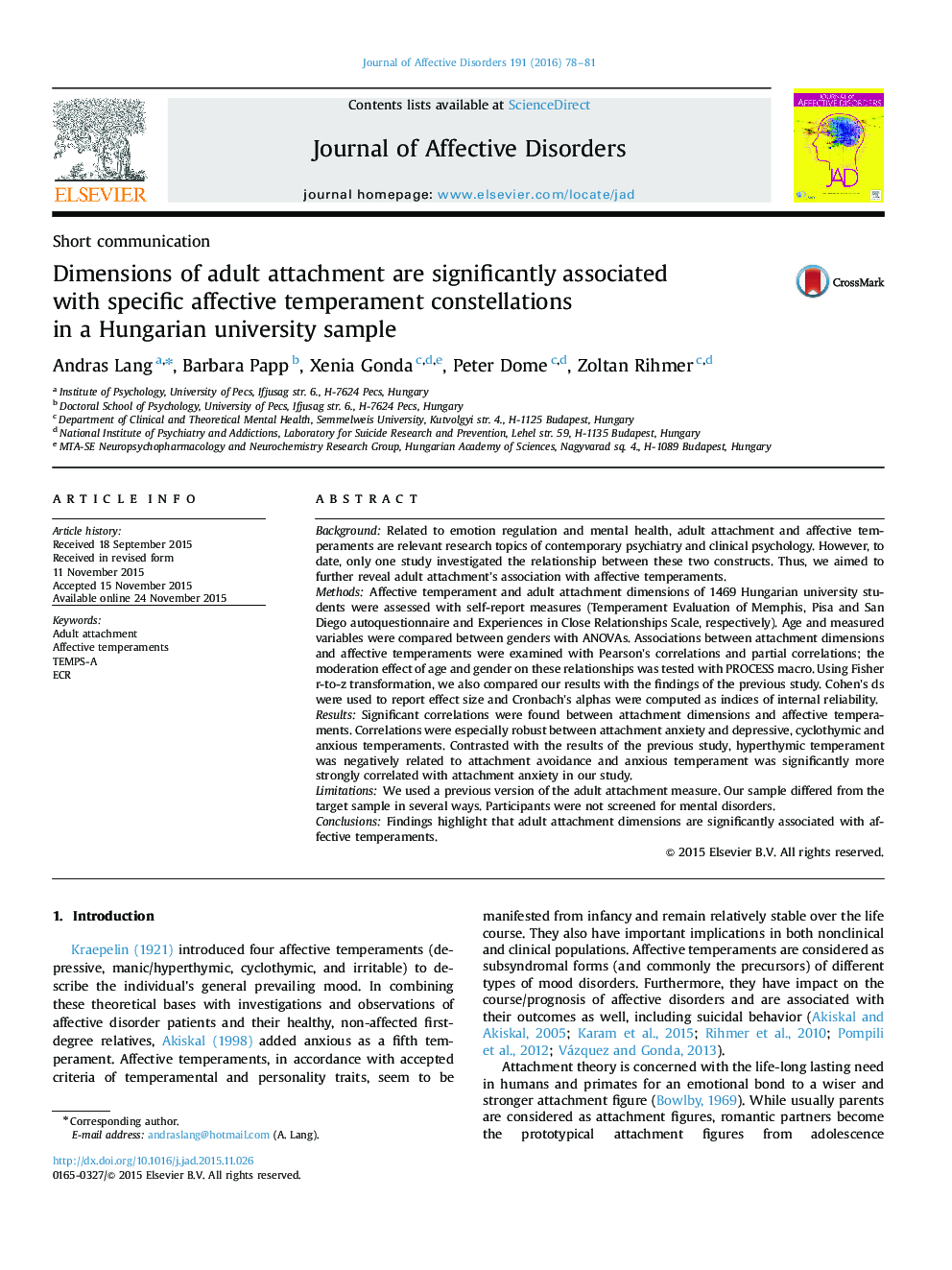| Article ID | Journal | Published Year | Pages | File Type |
|---|---|---|---|---|
| 6230527 | Journal of Affective Disorders | 2016 | 4 Pages |
â¢Adult attachment has already been linked to affective disorders and temperaments.â¢We investigated the relationship between affective temperament and adult attachment.â¢1469 (730 females) university students filled out self-report questionnaires.â¢Adult attachment dimensions correlated with affective temperaments in the expected directions.â¢These results replicate and extend the findings of the only study on this topic.
BackgroundRelated to emotion regulation and mental health, adult attachment and affective temperaments are relevant research topics of contemporary psychiatry and clinical psychology. However, to date, only one study investigated the relationship between these two constructs. Thus, we aimed to further reveal adult attachment's association with affective temperaments.MethodsAffective temperament and adult attachment dimensions of 1469 Hungarian university students were assessed with self-report measures (Temperament Evaluation of Memphis, Pisa and San Diego autoquestionnaire and Experiences in Close Relationships Scale, respectively). Age and measured variables were compared between genders with ANOVAs. Associations between attachment dimensions and affective temperaments were examined with Pearson's correlations and partial correlations; the moderation effect of age and gender on these relationships was tested with PROCESS macro. Using Fisher r-to-z transformation, we also compared our results with the findings of the previous study. Cohen's ds were used to report effect size and Cronbach's alphas were computed as indices of internal reliability.ResultsSignificant correlations were found between attachment dimensions and affective temperaments. Correlations were especially robust between attachment anxiety and depressive, cyclothymic and anxious temperaments. Contrasted with the results of the previous study, hyperthymic temperament was negatively related to attachment avoidance and anxious temperament was significantly more strongly correlated with attachment anxiety in our study.LimitationsWe used a previous version of the adult attachment measure. Our sample differed from the target sample in several ways. Participants were not screened for mental disorders.ConclusionsFindings highlight that adult attachment dimensions are significantly associated with affective temperaments.
